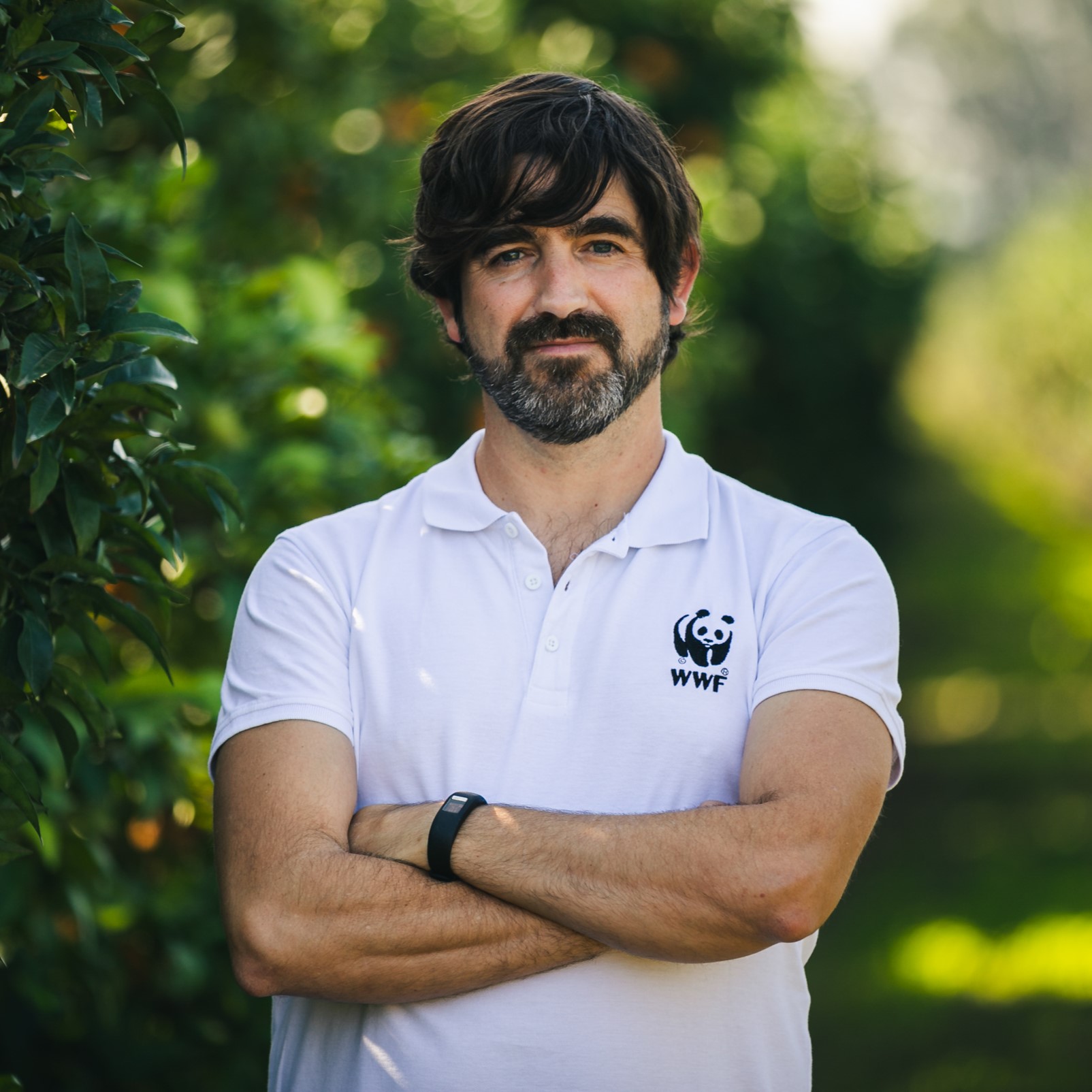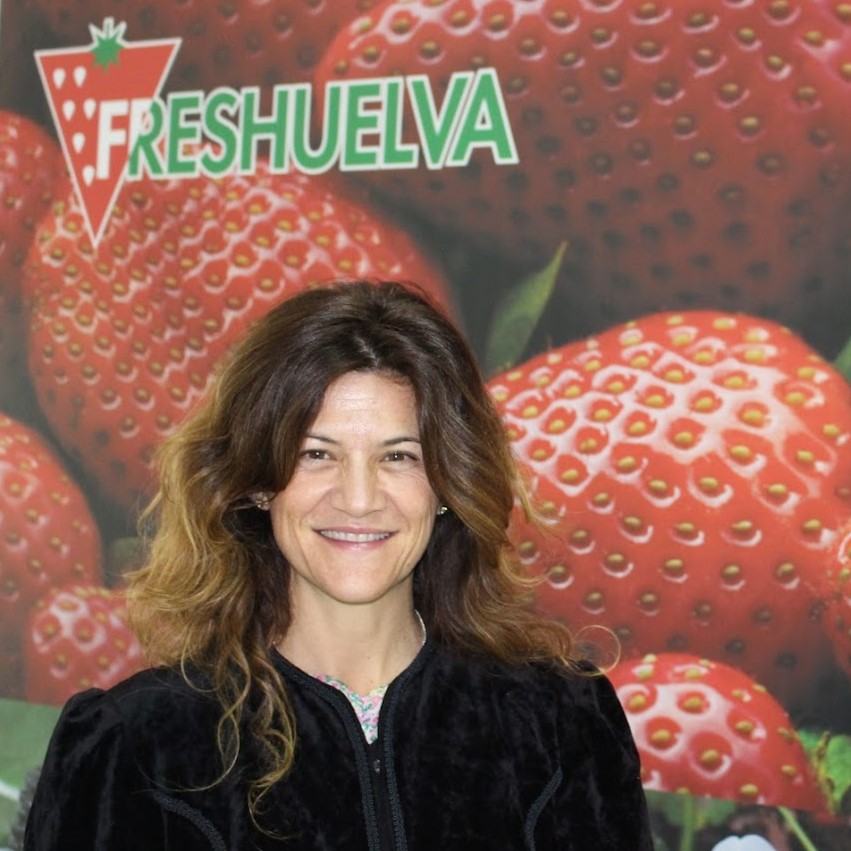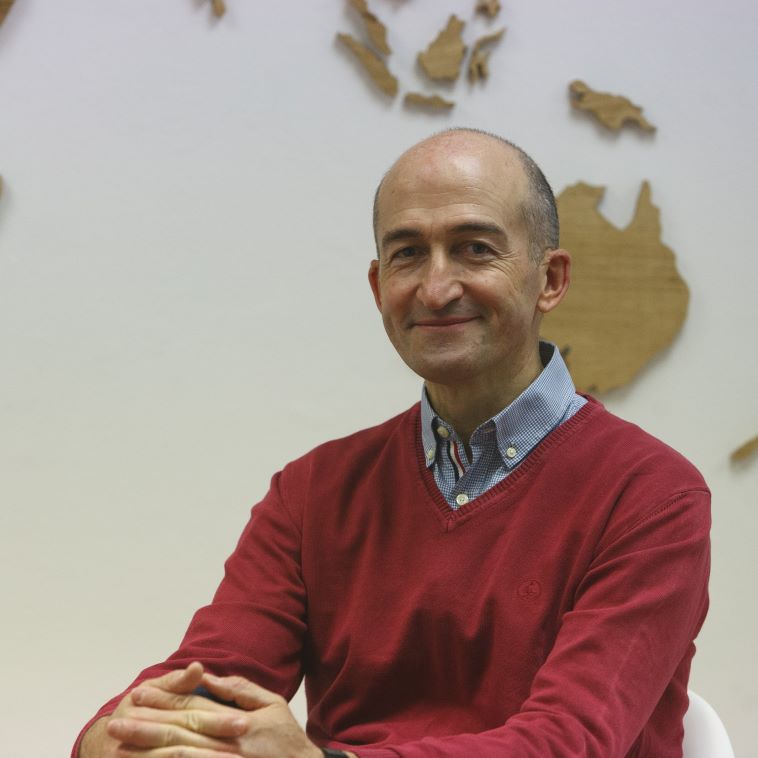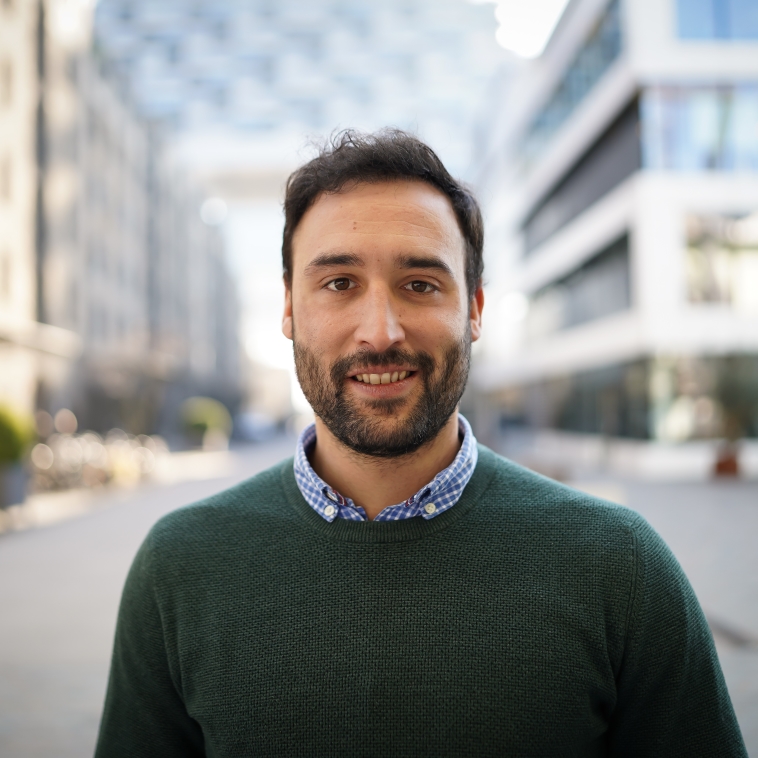Events
“Addressing responsible water management in high water risk regions”
At Fruit Logistica 2024, we will host a moderated panel discussion on shaping the future of water management in crucial agricultural regions. Taking place on 8 February (3 p.m., Beta 6 room, Hall 27), the discussion will be hosted by journalist and Fruitnet Media International CEO Chris White and feature stakeholders from around the world. Learn more about the panelists and their work below.

Chris White
CEO of Fruitnet / Moderator of the panel discussion at Fruit Logistica 2024
Chris White is managing director of Fruitnet Media International, the world's leading publisher of fresh produce business magazines and conferences. After joining the business as a journalist in London in 1988, he became editor of Eurofruit in 1992, launched Asiafruit in 1995, and Americafruit in 2000. Fruitnet also organises fresh produce business conferences all over the world. It is the official partner of the ASIA FRUIT LOGISTICA and FRUIT LOGISTICA trade shows, of which he is chairman of the advisory board. Chris White is a regular speaker and moderator at fresh produce business conferences worldwide, including the GLOBALG.A.P. SUMMIT, and he is a member of the International Federation of Agricultural Journalists (IFAJ), a liveryman of the Worshipful Company of Fruiterers, and a Fellow of the Royal Society of Arts (FRSA).
Panelists
Coen Frederiks
Program Manager at the Sustainability Initiative Fruit and Vegetables (SIFAV)
Read moreSara Llopart
CEO at Compensa Agroinnovacion and Freshuelva's delegate to the GRASP Technical Committee
Read moreAlexandre Garcia-Devis Flores
Technical Expert Sustainability at GLOBALG.A.P. c/o FoodPLUS
Read moreFelipe Fuentelsaz
Agriculture and Water Coordinator at World Wildlife Fund (WWF) Spain

Background
Felipe Fuentelsaz is agronomist and agricultural coordinator for WWF Spain. Based in the Doñana office in southern Spain, he has a wide range of experience working to reduce the environmental impact of agricultural production. He also collaborates with the leading European supermarkets and agricultural standards for fruit and vegetables production to conserve key natural resources such as water and biodiversity.
Personal statements
Water scarcity and loss of biodiversity in water protected areas are the main problems in my current working area, mainly in the surrounding area of the wetlands of the Doñana National Park in the south of Spain. Part of my work is to analyze the possibilities in finding the balance between economic activities such as farming and the preservation of natural values in areas of environmental protection.
From a WWF Spain point of view, there are two clear actions. One is ensuring the legal use of water in agricultural production and increasing water governance. On the other hand, reducing the use of water and implementing innovation projects to reduce water consumption. In both actions, markets and standards are key partners, and solutions such as the Sustainable Program for Irrigation and Groundwater Use (SPRING) add-on from GLOBALG.A.P. help to address these issues.
In future, administrations in water risk areas should have a map where farms with legal water rights are clearly identified, and farmers implementing efficiency projects should consume only the available water, for optimum production. This will support the balance with water natural resources in their regions.
Coen Frederiks
Program Manager at the Sustainability Initiative Fruit and Vegetables (SIFAV)

Background
SIFAV is a coalition of 47 organizations in or linked to the fresh produce sector such as importers, retailers, certification bodies, and NGOs – which commit to creating a more sustainable fresh produce supply chain. The initiative has a broad program which covers several environmental topics, including water. As Program Manager for SIFAV members, Coen Frederiks coordinates the promotion of blue water footprint reduction, increased uptake of water management standards, and development of collective action projects in key high risk water regions.
Personal statements
Issues will vary substantially by region, but fresh produce companies that produce in or source from, for example Peru, face water shortages (dry season), erosion (wet season), and because of that, both habitat loss and local livelihood endangerment.
Current solutions involve site-based water management practices on water usage and third -party verification to ensure recognition in the market, and to a limited extent, off-site practices to improve water infiltration and retainment or to anchor top soil.
We will need much higher capacity across the private sector and public sector to recognize, reward, and enforce collective (catchment level) off-site interventions, so that these are maintained in the same way as any other part of the day-to-day operations of a company in or related to these regions.
Sara Llopart
CEO at Compensa Agroinnovacion and Freshuelva's delegate to the GRASP Technical Committee

Background
As an agricultural engineer with an agricultural MBA, Sara Llopart works as CEO at Compensa Agroinnovacion and has been Freshuelva's delegate to the GLOBALG.A.P. Risk Assessment on Social Practice (GRASP) Technical Committee since 2020. She is also the managing director and founder of Compensa Agroinnovacion, established in 1998, and works as a GLOBALG.A.P. Registered Trainer in Spain.
Personal statements
Water resources are scarce in reservoirs and aquifers due to consecutive years of low rainfall in the province of Huelva and southern Spain. This, combined with human consumption, industry, and agriculture, has resulted in a significant water deficit that has made production more dependent on public hydraulic infrastructure.
Growers have digitized and modernized their irrigation systems to optimize consumption. Starting in 2022, they were able to grow crops with 25% less water, and from January 2024, they grow crops with a 50% restriction. It is important to note that fruit is 90% water-based and still of high quality and aligned with food safety requirements.
The most responsible way to continue producing safe and high-quality fruit is through precision irrigation systems, controlling water inputs, and using technology to allow the return of water to the recharge zone of aquifers. Objective methodology and data should be used to account for what we as growers regenerate, desalinate, reuse, and replenish in bodies of water.
José Luis Molina
CEO of Hispatec

Background
José Luis Molina is an agronomical engineer with qualifications in management, software technology, and economics from multiple business schools and universities. He has 30 years of professional experience in software and data technologies, big data and AI, the agrifood sector, energy, water, and environmental sustainability.
Personal statements
We face issues such as water scarcity and price, efficiency in terms of “crop per drop”, and environmental impacts in water stemming from agrifood activity. Obstacles include the lack of data, low control on field operations, and poor demand for product water footprint.
Integrated software / hardware and data solutions from “farm-to-market” , metering and controlling water usage, efficiency and environmental impacts with a value chain approach.
Integrated water and fertilizer automated control – based on software, data, and AI – in dynamic and smart deficit irrigation systems that are linked to full farm-to-market traceability and consumer transparency.
Carlos Valdivia
Sales Director at Kiwa Spain

Background
With a degree in food technology and an MBA in Food Companies Management, Carlos Valdivia has. 15 years’ experience in TIC (testing, inspection, and certification) services. For the last five years, he has been working at Kiwa Spain, in areas such as sustainability, marketing, training, and for the last year, as Sales Director.
Personal statements
Water availability in some regions, with obstacles relating to the need for better infrastructure.
In Spain, we are working with the community of irrigators who manage water.In Latin-America, it is important to raise the quality of water.
Water use technology is the number one priority. I imagine the improvement of water use efficiency – using 100% of the water in water risk regions.
Alexandre Garcia-Devis Flores
Technical Expert Sustainability at GLOBALG.A.P. c/o FoodPLUS

Background
Working as Technical Expert Sustainability, Alexandre Garcia-Devis Flores holds a master’s degree in agricultural engineering. Through his work at GLOBALG.A.P., he contributes to supporting producers, supply chain stakeholders, and buyers to demonstrate their commitment to more responsible on-farm water stewardship. The Sustainable Program for Irrigation and Groundwater Use (SPRING) add-on helps to identify, mitigate and improve efficiency of water use at farm and catchment level. The solution aims to increase awareness, improve transparency in value chains, and rovide tools that support operational due diligence strategies.
Personal statements
The main issue we face is that water quantities allocated for agriculture are decreasing every year. Beyond the long periods of droughts , the use of water in cities and other activities, is ensuring that producers experience a lower availability of water every year. The consequence is a decrease in profitability, a reduction in production, and eventually, an increase in consumer prices.
Water is a limiting factor for plant growth. Water scarcity can only be faced with responsible water management at farm, basin, and regional level. This starts from increasing the efficiency of water use in farming activities, along with off-farm cooperation that enables the sustainability of the basins – with the support of civil engineering infrastructure that can support the better distribution of water resources and the resilience of the industry.
We need solutions that while suitable for the whole world, are adapted to the inherent risks of a particular area or farm. The tools of the future will need to be science -based, risk oriented, and measurable. Water scarcity is everybody’s problem and has an impact, direct or indirect, on the whole of humanity. Therefore, solutions need to be developed and implemented at global scale (farmers, administrations, researchers, technicians, retailers), while addressing the particularities of each situation.